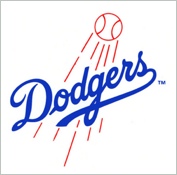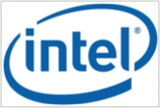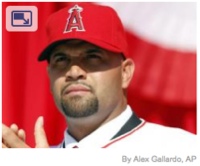-
HBO Offers Free Online Access to Two New Shows to Non-Subscribers
HBO announced yesterday that it will offer online access to premiere episodes of its two newest shows, "Girls" and "Veep" to non-subscribers on HBO.com, YouTube, Dailymotion, TV.com, and via distributors' free VOD platforms. "Veep" will also be offered as a free download on iTunes. Access will begin the day after the shows launch on HBO and run for a month. The initiative is savvy on a number of different levels, and continues to show how HBO is tapping new online video opportunities while cautiously adhering to its traditional distribution model.
Categories: Cable Networks
Topics: HBO
-
Is the Cable Ratings Drop-off the Tip of the OTT Iceberg?
I'm constantly on the lookout for data points that provide insights into how viewer behavior may be changing, particularly with respect to possible shifts from traditional pay-TV offerings to new over-the-top (OTT) alternatives.
That's why a client note from the media analysts at Citigroup this week, which highlighted the ratings drop-off that cable TV networks as a group are experiencing, caught my eye. The Citigroup note follows a recent WSJ report explaining that 11 of the top 15 cable networks have lost audience this year, including a whopping 25% decline at Nickelodeon among its kids 2-11. Citigroup said that for each of the last 6 months, cable's total day ratings decline has actually accelerated, from 2.3% last October to 7.8% in March.
Citigroup's main concern about this ratings drop-off is that cable networks' ad revenue growth is slowing as well, in turn pressuring their media company owners' valuations. While that is surely a worry for investors, an even broader issue to consider is whether the drop-off in cable's ratings is the tip of the OTT iceberg, signaling that the explosion of online-delivered alternatives is beginning to impact viewership patterns. While it's too early to conclude this, all of the elements that would drive OTT's rise - at cable's expense - appear to be falling into place.Categories: Cable Networks, Indie Video
Topics: Citi
-
Comcast Authenticates HBO GO on Xbox As Online Delivery Shifts Industry Leverage
Comcast announced on its blog on Friday that it will indeed authenticate HBO GO for use by subscribers with both Xbox and the Xbox Live service. When Xbox initially announced two weeks ago that it was enabling Comcast's Xfinity TV, MLB.TV and HBO GO apps, Comcast (along with Time Warner Cable and Bright House) subscribers were unable to access HBO GO, because the cable operators weren't authenticating it. For Comcast subscribers, that meant the only HBO programs they could view on their Xbox was via the Xfinity app, which offers far less content. The move set off a vocal protest by Comcast/HBO/Xbox subscribers, including a much-noticed Facebook post by Netflix CEO Reed Hastings.
Categories: Cable Networks, Cable TV Operators, Devices
-
VideoNuze Report Podcast #128 - Comcast to Authenticate HBO GO on Xbox? MMOD Traffic Down
I'm pleased to be joined once again by Colin Dixon, senior partner at The Diffusion Group, for the 128th edition of the VideoNuze Report podcast, for April 6, 2012. First up this week we discuss another angle of last week's Xbox video launch - whether Comcast will reverse itself and authenticate HBO GO for its subscribers (as Netflix CEO Reed Hastings wrote openly on Facebook asking Comcast to do). Then we discuss the downturn in March Madness online traffic and the effect of Turner's new paywall.
Last week when Xbox launched a number of new video apps including Comcast's Xfinity, HBO GO and MLB.tv, Comcast made a decision not to authenticate HBO GO for its own subscribers with Xboxes, thereby forcing them to settle for HBO content that's available within its own Xfinity app. As Colin points out, that was a continuation of Comcast's (and other pay-TV operators') policy of not authenticating the HBO GO app for its subscribers using Roku.
A vocal group of Comcast/HBO subscribers with Xbox complained, with Hastings's post getting the most attention. This week, the NY Times reported that Comcast might reverse itself and authenticate HBO GO after all. It's confusing stuff, and Colin and I do our best to explain what might be going on behind the scenes with the balance of power between cable operators and cable networks.
We then discuss news that daily March Madness traffic was down 10% year-over-year, likely attributable to Turner introducing a $3.99 app to view the games for which it had broadcast rights (CBS games were still available online for free). There was a paywall up until a few years ago, when the full tournament went free online, causing an explosion of traffic and ad revenue. Colin and I interpret the new data and its broader implications for TV Everywhere.
(For everyone celebrating holidays, enjoy your weekend!)
Listen in to learn more!
Click here to listen to the podcast (18 minutes, 48 seconds)
Click here for previous podcasts
The VideoNuze Report is available in iTunes...subscribe today!Categories: Cable Networks, Cable TV Operators, Devices, Podcasts, Sports
Topics: Comcast, HBO GO, MMOD, Turner Sports, Xbox
-
FreeWheel Powering NBCU's Digital/Mobile Video Ads
Video ad technology provider FreeWheel added another big content provider to its customer roster yesterday,
 announcing that it will be powering video ads for a group of NBCU's broadcast and cable networks' properties.
announcing that it will be powering video ads for a group of NBCU's broadcast and cable networks' properties.
In particular, the deal also covers NBCOlympics.com, the network's destination for the London games this summer. FreeWheel noted that as a result advertisers will be able to make specific digital ad buys and combined broadcast/digital packages, which NBC will be able to deliver. This opens up potential targeting at a more granular level than has been available with traditional TV.Categories: Advertising, Broadcasters, Cable Networks
-
VideoNuze Report Podcast #127 - Comcast's Private Network for Xbox; L.A. Dodgers Revolt?
I'm pleased to be joined once again by Colin Dixon, senior partner at The Diffusion Group, for the 127th edition of the VideoNuze Report podcast, for Mar. 30, 2012. First up this week we discuss Comcast's controversial assertion that streams from its Xfinity app running on Xbox won't count against subscribers' 250 gb/month data cap because they're running on Comcast's "private network" (note: Comcast has deleted "private network" references in its Xbox FAQ).
Colin argues strongly that this is an inappropriate policy in that it essentially creates a "fast lane" for Comcast's own traffic, while disadvantaging other video streams - basically the same concern raised by net neutrality advocates. Colin makes compelling points about the shared nature of broadband access and the longer-term implications of a "private network" model. For my part, I'm still curious the use case for the Xfinity Xbox app; unless it's used for TVs where a set-top box isn't present, it feels somewhat redundant to what's already available via Comcast's VOD.
Next we turn our attention to this week's mega-deal for the Dodgers. As I wrote yesterday, I think the deal will lead to even higher Regional Sports Network licensing fees, which in turn means even higher subsidies by non-sports fans to make the deal work. This is a problem throughout the pay-TV world, and the new Dodgers owners are betting non-fans will continue to pay ever-higher rates for sports they don't watch. Colin and I discuss the implications for over-the-top services and the pay-TV multichannel bundle.
Listen in to learn more!
Click here to listen to the podcast (21 minutes, 45 seconds)
Click here for previous podcasts
The VideoNuze Report is available in iTunes...subscribe today!Categories: Cable Networks, Cable TV Operators, Podcasts, Sports
Topics: Comcast, Los Angeles Dodgers, Xbox
-
Will L.A.'s Non-Sports Fans Revolt Over Dodgers' Mega-Deal?
This week's eye-popping $2.15 billion acquisition of the Dodgers officially makes Los Angeles ground zero for
 the most egregiously anti-consumer aspect of today's pay-TV multichannel bundle: the massive annual subsidization by non-sports fans of hyper-expensive sports programming.
the most egregiously anti-consumer aspect of today's pay-TV multichannel bundle: the massive annual subsidization by non-sports fans of hyper-expensive sports programming.
This is a topic I have written about previously in "Not a Sports Fan? Then You're Getting Sacked For At Least $2 Billion Per Year" and "Why Albert Pujols is Over-the-Top's New Best Friend." A confluence of factors, some particular to L.A.'s sports market, is bringing this little-understood issue into the spotlight, in turn raising the question of whether non-sports fans will revolt, seeking out less expensive over-the-top alternatives.Categories: 3D, Analytics, Cable Networks, Sports
Topics: Los Angeles Dodgers
-
Intel TV Plan Faces Long Odds Against Success
If, as the WSJ is reporting, Intel is indeed serious about launching an over-the-top TV service later this year to
 compete against incumbent pay-TV operators, it faces long odds against success. The chip giant would be wading into the same terrain that has enticed Google, Microsoft, Apple, Sony and others. All of these technology companies are justifiably intrigued by the opportunity to disrupt a multi-billion industry rife with inefficiencies, cross-subsidies, inferior living room technologies and crummy user experiences. The problem is none of them can crack the code on how to succeed. Intel is likely to be no different.
compete against incumbent pay-TV operators, it faces long odds against success. The chip giant would be wading into the same terrain that has enticed Google, Microsoft, Apple, Sony and others. All of these technology companies are justifiably intrigued by the opportunity to disrupt a multi-billion industry rife with inefficiencies, cross-subsidies, inferior living room technologies and crummy user experiences. The problem is none of them can crack the code on how to succeed. Intel is likely to be no different.Categories: Cable Networks, Cable TV Operators
Topics: Intel
-
RAMP Lands ABCNews.com, CNBC.com For Web Closed Captioning
Technology provider RAMP is announcing this morning that ABCNews.com and CNBC.com are now using its web closed captioning solution, and that it has made a number of enhancements in order to better meet the needs of customers. For those not familiar with web closed captioning, the 21st Century Communications and Video Accessibility Act signed in Oct. 2010 mandates that by the end of 2012, all video originally aired on broadcast or cable TV networks, which is then delivered online, must include closed captions.
As RAMP's CEO Tom Wilde explained to me last week, the act has created huge new challenges for TV networks because when captioned on-air video is passed from the broadcast team to the digital team for online delivery, there's no adequate workflow to keep the caption file in synch with the video. The situation becomes even more complicated when a full-length video is sliced up into shorter online-only clips.Categories: Broadcasters, Cable Networks, Technology
-
FreeWheel Powering A+E Networks Video Ads on Apple iOS Devices
A+E Networks will use FreeWheel's Monetization Rights Management system to manage video ads running against its content consumed on Apple iOS mobile devices, the companies announced this morning. A+E will be able to deploy video ads on its own mobile properties as well as those of third-party syndication partners. FreeWheel gives A+E the ability to manage ad sales rights, forecast inventory, determine ad loads in specific commercial breaks, and monitor performance, among other things.
Categories: Advertising, Cable Networks
-
Online-Only Originals Are Entering a Virtuous Cycle
Just last week, in "Hollywood's A-Listers Embrace Online Video, Upending the Status Quo," I noted all the various factors that are contributing to top industry talent now pursuing online-only projects. But as I've had a chance to digest last week's CES announcements, plus Hulu's news yesterday that it too is planning an aggressive originals strategy in 2012, I think it's quite likely that online-only originals are entering a "virtuous cycle." Key elements for online-only originals' success are falling into place and are poised to build on each other, combining to dramatically accelerate the growth and acceptance of this emerging class of programming.
Categories: Aggregators, Cable Networks, Indie Video
Topics: AOL, Hulu, Netflix, Yahoo, YouTube
-
Even Microsoft Can't Afford to Break Into the Pay-TV Business
Here's just how expensive it has become to break into the pay-TV business: even mighty Microsoft can't afford it. Reuters reported late yesterday that Microsoft has put on hold its plan to create a pay-TV meets Netflix type
 subscription service, after getting sticker shock over the cost of content distribution deals. When you have $52 billion of cash and equivalents on your balance sheet and still can't figure out how to make the numbers work, that's a pretty significant statement about how expensive licensing linear content has become.
subscription service, after getting sticker shock over the cost of content distribution deals. When you have $52 billion of cash and equivalents on your balance sheet and still can't figure out how to make the numbers work, that's a pretty significant statement about how expensive licensing linear content has become.Categories: Cable Networks, Cable TV Operators, Satellite, Telcos
-
Comcast's New "AnyPlay Device" Provides Air Cover for iPad Streaming
Comcast has unveiled AnyPlay which allows subscribers to stream linear TV channels to their iPads and soon Motorola Xoom tablets. AnyPlay is initially available in Denver and Nashville, with other markets to follow. AnyPlay follows similar initiatives from Cablevision and Time Warner Cable last year, which immediately landed those operators in hot water with a number of cable TV networks. At issue was whether the appropriate rights were in place to offer tablet streaming, even within the home.
available in Denver and Nashville, with other markets to follow. AnyPlay follows similar initiatives from Cablevision and Time Warner Cable last year, which immediately landed those operators in hot water with a number of cable TV networks. At issue was whether the appropriate rights were in place to offer tablet streaming, even within the home.
Meanwhile Comcast laid low last year, only making on-demand programming available through its Xfinity TV iPad app. It was inevitable that Comcast would also launch linear viewing on the iPad, but I've wondered for a while how it would avoid similar rights challenges. Now it seems the workaround is the "AnyPlay device," a box which connects to the subscriber's wireless home network.
Categories: Cable Networks, Cable TV Operators, Devices
Topics: Comcast, iPad, Motorola, Xoom
-
Disney, Comcast and Why TV Everywhere Alone Is Not Enough
Yesterday's press release from Disney and Comcast, announcing a comprehensive new ten-year distribution agreement covering over 70 different services is a testament to the idea that improved access to programming is key to maintaining the appeal of the traditional multichannel pay-TV business model. The deal grants Comcast sought-after multi-platform streaming and on-demand rights for 70 different Disney, ABC and ESPN programming services. This is the essential vision of "TV Everywhere" - anywhere/anytime/any device access to the full range of cable and broadcast programming, with the caveat that you have to be an authenticated subscriber to pay-TV services.
Categories: Cable Networks, Cable TV Operators, TV Everywhere
-
VideoNuze Report Podcast #114 - Sports Rights Fees and OTT
I'm pleased to be joined once again by Colin Dixon, senior partner at The Diffusion Group, for the 114th edition of the VideoNuze Report podcast, for Dec. 16, 2011. In today's podcast Colin and I discuss the escalation in sports rights fees, player salaries, sports networks' affiliate fees and pay-TV rates.
Earlier this week I wrote about the massive, $254 million contract baseball slugger Albert Pujols signed with the Angels and how a new 20-year, $3 billion deal with Fox Sports enabled the team to afford the deal. But that's already old news, because since then the NFL signed $28 billion worth of deals with CBS, Fox and NBC (on top of the $15.2 billion renewal with ESPN agreed to in September), and ESPN forked over another $500 million for broader rights with NCAA.
Why does all this matter? Because as I've said repeatedly throughout the year, these deals are largely funded by non sports fans, through their ever-higher monthly pay-TV bills. As Colin and I agree, it's an unsustainable trend that's largely being enabled by consumers' ignorance and inertia about what they're paying for. Coincidentally, just today the NY Times has an article on this topic, the first one I've seen from a mainstream newspaper. The byproduct of escalating pay-TV rates is that they're opening the door for OTT alternatives to thrive. Listen in to learn more!
Click here to listen to the podcast (16 minutes, 11 seconds)
Click here for previous podcasts
The VideoNuze Report is available in iTunes...subscribe today!Categories: Cable Networks, Podcasts, Sports
Topics: CBS, ESPN, FOX, NBC, NCAA, NFL
-
Why Albert Pujols is Over-the-Top's New Best Friend
When baseball great Albert Pujols signed a staggering 10-year, $254 million deal with the Los Angeles Angels of Anaheim last week, he became over-the-top's (OTT) new best friend. That's right, everyone including Netflix, Hulu, YouTube and Amazon, plus countless online-only content producers, should have been celebrating Pujols's new riches. Why? Because the Pujols deal is the latest example of how pay-TV seems determined to price itself out of reach for certain segments of the population, opening up a huge window for OTT to succeed.
over-the-top's (OTT) new best friend. That's right, everyone including Netflix, Hulu, YouTube and Amazon, plus countless online-only content producers, should have been celebrating Pujols's new riches. Why? Because the Pujols deal is the latest example of how pay-TV seems determined to price itself out of reach for certain segments of the population, opening up a huge window for OTT to succeed.
Categories: Cable Networks, Cable TV Operators, Indie Video, Satellite, Sports, Telcos
Topics: Albert Pujols, Angels, ESPN, FOX, Liberty Global, TNT
-
Video Interview: HBO Co-President Eric Kessler at VideoSchmooze
A highlight of last week's VideoSchmooze:NYC Online Video Leadership Forum was the leadoff fireside interview I did with Eric Kessler, HBO's co-president. Our conversation focused on HBO GO, the streaming app that HBO officially launched on May 1st, which has received approximately 5 million downloads to date.
In the interview, Eric offers a comprehensive explanation of how HBO's business model works and the value-added role that HBO GO plays in extending subscribers' life-cycle. He provides a slew of new data points on HBO usage by content type and device, as well as how it's changing subscribers' perceptions of HBO. Eric also notes that the most critical decision HBO made was to include virtually all of its programs' episodes in HBO GO, although the move undermined its lucrative home video/DVD business for a segment of buyers.
Categories: Cable Networks, Events, People
Topics: HBO, VideoSchmooze
-
YouTube's Redesign: The Long-Term Siege on Pay-TV Begins
Yesterday YouTube launched its most significant redesign yet, with a strong emphasis on channelizing the site, deeply personalizing the experience, and integrating social interaction throughout. As the introductory blog post says, the redesign is all about helping users "discover a broader range of entertainment on YouTube." And though YouTube would never admit it, I think the redesign marks the start of a long-term siege on the traditional pay-TV model. YouTube is squarely focused on would-be cord-cutters and especially the younger generation of "cord-nevers" for whom the web has already become a bona fide alternative to expensive pay-TV services.
Categories: Aggregators, Cable Networks, Cable TV Operators, Satellite, Telcos
Topics: YouTube
-
HBO GO: 98 Million Streams to Date and Staying Exclusive
In an interview with me at yesterday's VideoSchmooze, HBO co-president Eric Kessler said that HBO GO has delivered 98 million video streams to date. HBO GO is offered at no extra cost to existing HBO subscribers as long as their pay-TV provider and HBO have agreed to make the service available. Eric also noted that HBO intends for HBO GO to remain the sole streaming outlet for its programs as it believes this type of exclusivity is a key differentiator vs. aggregators like Netflix, Amazon and others, most of whose content is non-exclusive. Clearly this is what HBO GO users want: over 70% of viewership has been for HBO's original programs.
Categories: Cable Networks
-
Google To Go Over-the-Top and Compete With Pay-TV Operators? Don't Bet On Success.
Is Google planning to go over-the-top and compete with pay-TV operators for subscribers? That's the tantalizing possibility the WSJ is reporting this morning, though its article is long on speculation and short on hard facts and on-the-record sources (as best I could tell, the only concrete thing reported is that Google has hired Jeremy Stern - a former colleague of mine at Continental Cablevision - who's "spearheading talks with media companies"). Regardless, the possibility that Google could be looking to disrupt the pay-TV business, using its own high-speed fiber network in Kansas City and maybe elsewhere, deserves attention if for no other reason than the fact that its deep-pockets and robust ad model would potentially allow it to cause trouble for incumbents.
reported is that Google has hired Jeremy Stern - a former colleague of mine at Continental Cablevision - who's "spearheading talks with media companies"). Regardless, the possibility that Google could be looking to disrupt the pay-TV business, using its own high-speed fiber network in Kansas City and maybe elsewhere, deserves attention if for no other reason than the fact that its deep-pockets and robust ad model would potentially allow it to cause trouble for incumbents.
"Potentially" is the operative word however, because any subscription TV service Google would offer would only be as good as the channels it could deliver (see Sezmi's recent retreat for proof of that). As such, the critical question here is whether the most important cable network owners - Disney, NBCU, Viacom, Time Warner, Fox, Discovery, Scripps, A&E Networks, AMC Networks, numerous regional sports networks (RSNs) and others - would agree to deals with Google. Though they would no doubt be enticed by Google as another well-funded buyer, barring some huge unknown, I'd bet that most would say "Thanks, but no thanks," effectively stymieing the search giant's ambitions.
Categories: Cable Networks, Cable TV Operators, Satellite, Telcos, TV Everywhere
Topics: Google


